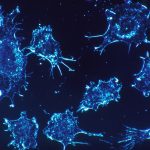The evolution of Bio(logical) Data exploration – and beyond
As our society gets into more and more complicated challenges to face, the scientific community embraces the cause of biological data exploration in order to bring new solutions to these challenges.
This month of November 2021 has been a very special one for a great community of Data Experts in the Life Science area, as it brought the community back together under the same roof, “In Real Life”, enabled also lively “phygital” discussions with their peers, and inspiring high-level conferences.
From Switzerland to France, attending to the BioData World Congress 2022 | 8 – 10 November 2022 and Festival of Biologics | 9 – 11 November 2021 in Basel, and then to the Immunotherapies & Innovations for Infectious Diseases Congress | I4ID 2021 in Lyon, our team has had the chance to get deeper into these topics and present its strong experience in the field, especially the -Omics one.
The programs of these events were fully directed into one goal : tackling the technical and scientific challenges of data exploration, and exchange with representative of various organizations, in order to identify the best way to perform it – both on the scientific and ethical levels. This enabled the conferences to be applied on the whole R&D Lifecycle of pharma, biotech and medtech development, from the very early stage of Lab discovery to the late step of post-market and epidemiological studies, and to explore on multiple -Omics application.
Among the explored topics, the AI (Artificial Intelligence) was a centric point, with a continuous redefinition of “What does AI mean to the researchers?”, as a trendy solution but which can have a “black box” effect, especially irrelevant for regulatory purposes. The “garbage in – garbage out” sentence has been quoted several times as well, as an important elements to keep in mind for all data users.
In particular, new opportunities of applications of AI for protein design have been presented, as recent innovations have led to the development of powerful tools that can be used to predict new protein designs and explore specific properties.
Specific AI methods have been presented as well, which have been developed in order to detect dengue-specific antibody repertoire and sequence patterns.
A combination of multi-omics and clinical data combined with AI-integrated advanced analytics have also been presented, to drive discoveries within precision oncology approaches, personalized medecine or Rare Diseases.
Other innovative solutions and methods have been presented as well, raising interest and curiosity in the community.
Blockchain applications for clinical trials, applied on patient data, have been presented as a possible new state-of-the-art method, enabling perfect control on patient’s data, and best security.
Quantum computing has been an interesting elements to explore as well, which will certainly be raising within the next 4 to 5 years, as the technology is today at a very early stage… But well supported by strong pharma players !
The combination of in vitro, in vivo and in silico data as a whole, as well as multi-Omics approachs and merging automation and data management, have been explored within multiple conferences, as this new trend enables a stronger and more holistic vision on the dataset, leading to more integrated and powerful analytics.
Focusing on the -Omics, the metagenomics, transcriptomics, proteomics and metabolomics areas have been present in a number of conferences, as well as the chemiomics one and multiple others. The multi-omics applications as well as the complexity of Omics data integration between them and with other data of various nature have been largely explored. Spatial Omics has also been presented as a very fresh perspective of application in this rapidly evolving area.
This month of November has been incredibly rich in term of ideas, innovations, networking, and more generally food for thoughts.
We are very much looking forward to next year for the next editions, and certainly presenting you a piece of our work !
Soladis - France (siège)
6-8 rue Bellecombe
69006 LYON - FRANCE
Tél: +33(0)4.72.83.86.70
Soladis GmbH - Suisse
Lange Gasse 15
CH-4052 Basel
Phone: +41(0)58.258.15.80
Soladis Inc. - USA
185 Alewife Brook Pkwy, Unit 210
Cambridge, MA 02138-1100
Phone: +1(857).675.1189
Nous contacter
RECHERCHER




